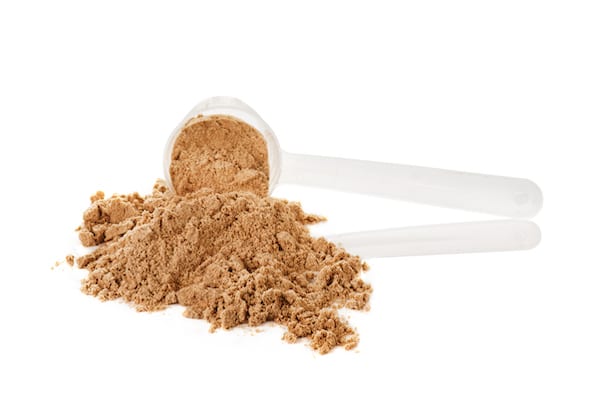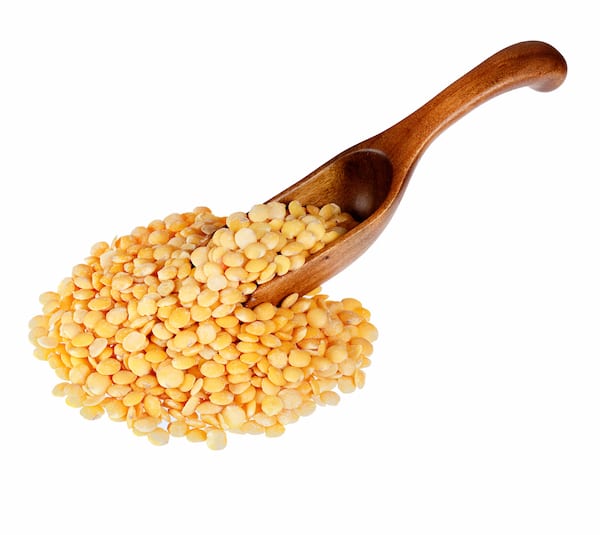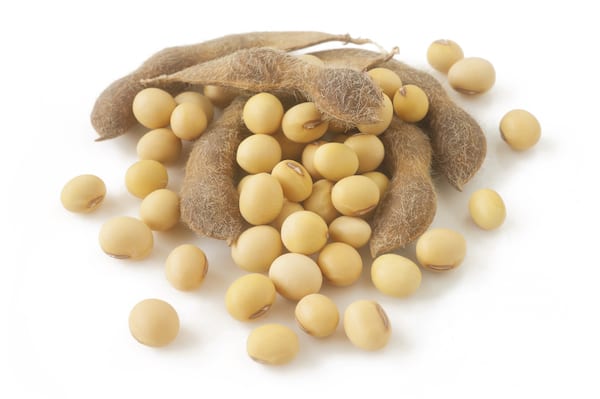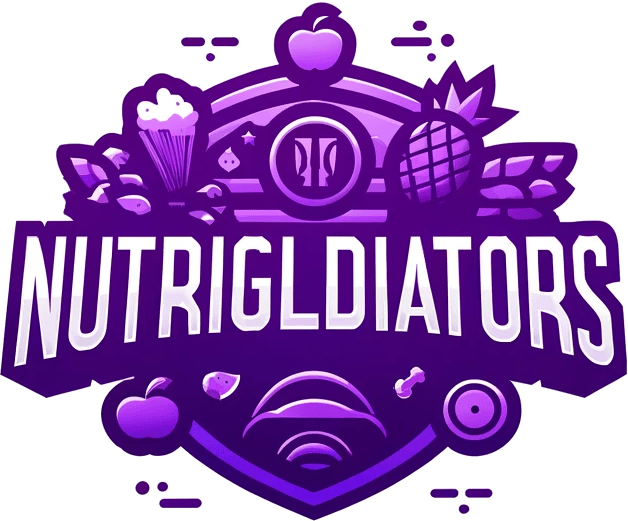[ad_1]
The number of plant-based protein powders is constantly increasing, which is great for vegans and vegetarians! But too many options can lead to confusion and indecision. Even if you manage to drill it down to two popular options — pea protein vs soy protein — how do you know which is best for you?
You want a product that tastes good, provides the nutrients you need for your goals, and won’t cause any negative side effects. So, to help you decide, we compare these two options so you can determine which will work best for you.
How Are Pea and Soy Protein Powder Made?

To make protein powder, manufacturers extract the protein content of foods. In the case of pea protein and soy protein powder, they mill yellow peas or soy beans respectively and turn them into powder either by dry separation or wet processing methods, explains registered dietitian and certified athletic trainer Dana Angelo White, MS, RD, ATC.
Dry separation consists of separating the fine protein powder from the coarse starch powder, which results in protein concentrate. Wet processing involves making a water-based solution out of the plant protein and running it through a centrifuge, which results in protein isolate.
The difference is that isolate is richer in protein with very little or no carbs or fat, while concentrate has slightly less protein and more carbs and fat, White explains. Isolated protein is at least 90 percent protein by weight, whereas concentrate is at least 70 percent protein by weight, according to the Food and Agriculture Organization of the United Nations.
Pea Protein Nutrition vs. Soy Protein Nutrition


Although exact nutritional facts will vary from brand to brand, here’s a look at how pea and soy protein powders stack up against each other.
Pretty similar! The biggest difference to note here is the type of protein that each provide. Soy is a complete protein, while pea is an incomplete protein. When a protein is complete, it provides all nine essential amino acids in adequate amounts.
Can Pea Protein Help You Build Muscle?

Even though pea protein is an incomplete protein, it can still help you build muscle effectively.
Overall, the amino acid profile of pea protein and soy protein is fairly comparable. According to a 2018 study, both have branched chain amino acids (BCAAs), which help to build and maintain muscle.
In general, your body needs protein to build muscle. And research shows that pea protein can be effective with helping to build muscle, particularly because of its high leucine content.
So whether you prefer pea or soy, you can still use plant protein powders to help you reach your goals.
Pea Protein Side Effects vs. Soy Protein Side Effects
Everyone responds to protein powders differently, not only because of the base ingredients, but sometimes also because of the other potential ingredients, like sugar alcohols, which can cause bloating.
There is no scientific evidence that pea protein powder is inflammatory, White says. Some find pea protein is easy to digest, but as long as you don’t have a soy allergy, most people don’t have a hard time digesting soy either, White says.
Then there’s isoflavones. Whole soy has these organic molecules, which may be beneficial for maintaining health.
But soy protein powder doesn’t deliver many isoflavones. Up to 80 to 90 percent of the isoflavones can be lost during the processing of isolated soy protein.
Which Should You Use?
Both pea protein and soy protein are good options for plant-based protein powders. However, pea has slightly higher levels of certain amino acids and some may find it easier to digest.
Soy and pea powders have comparable amounts of protein and fiber, and, unless you are allergic to soy, you don’t have to avoid it.
“Both are excellent plant-based options. Everyone tolerates protein powders differently, so it comes down to personal preference and tolerance,” White says.
[ad_2]


